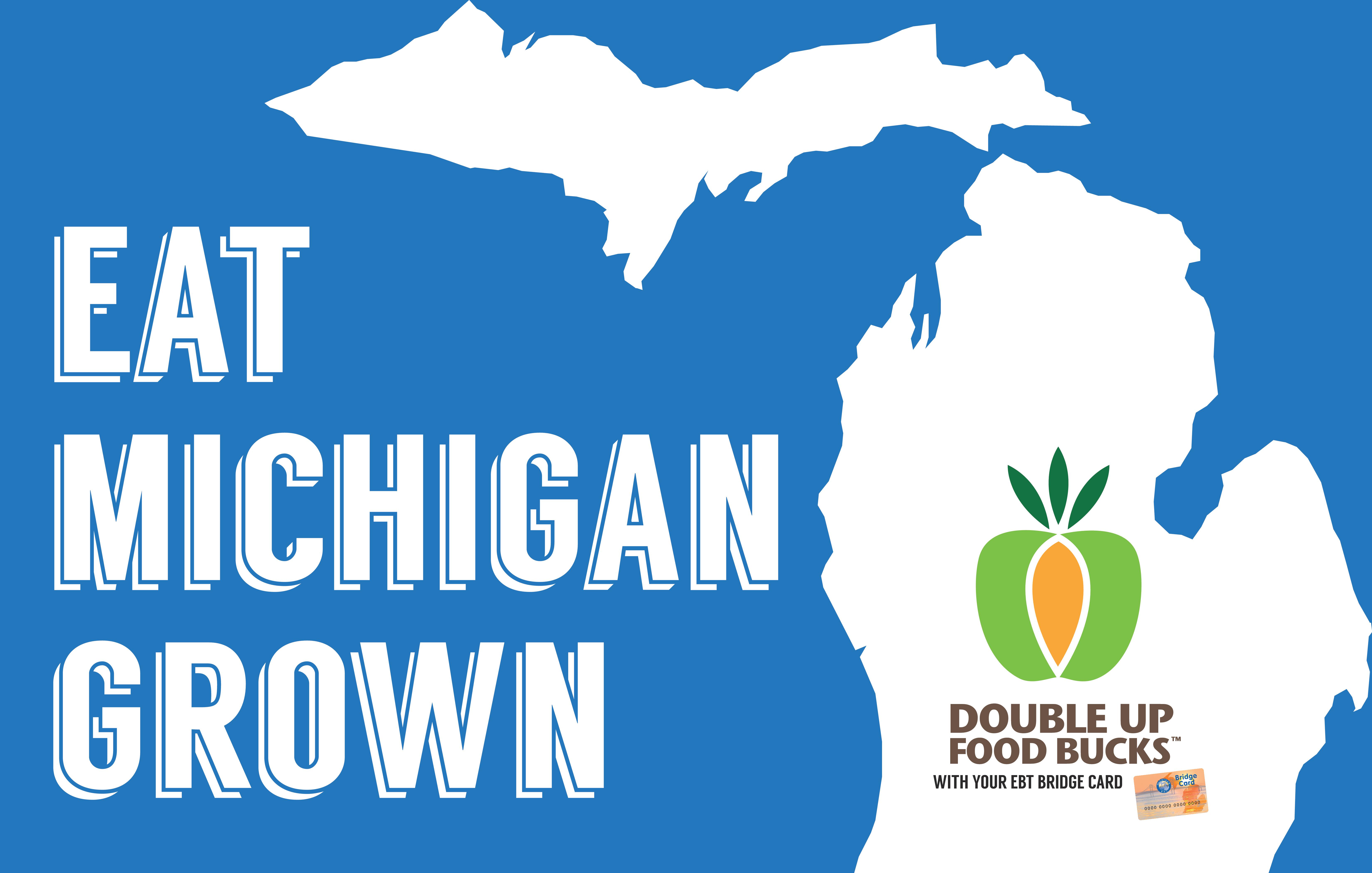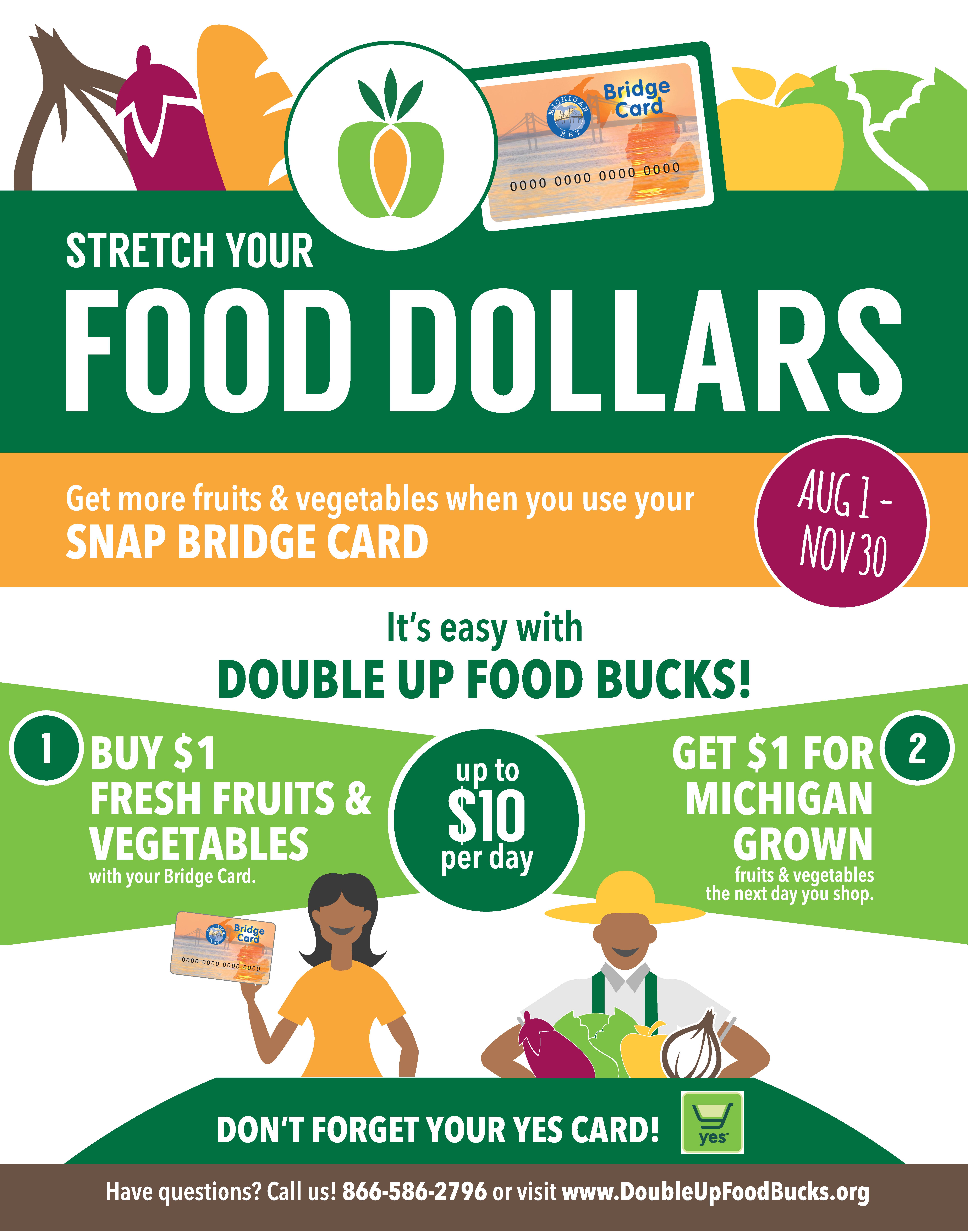Incentives Meet Grocery: A Q&A With SpartanNash
In 2013, Fair Food Network brought our experience implementing incentives at farmers markets to the places where the majority of people buy the majority of their food the majority of the time: grocery stores.
We started at three independent grocery stores in Detroit in one of the first pilots in the nation bringing incentives to this setting. In 2014, we expanded our work in grocery to Grand Rapids and Battle Creek with Michigan-based grocery chain and food distributor SpartanNash. The partnership has created a template for scaling Double Up incentives to SpartanNash stores throughout the country.
We chatted with Brian Haaraoja, the company’s vice president of fresh merchandising to learn more about why SpartanNash is excited about Double Up incentives. Learn more about our work in grocery here.
Why did SpartanNash choose to participate in this healthy food incentive pilot?
We are constantly looking for ways to help our customers. We aim to be a good partner in the community and work with local organizations to provide the best, most wholesome food possible for our customers. We think it is our responsibility to support our community and help our customers supplement a healthy diet.
One of our main priorities as a company is a commitment to health and wellness. So offering incentives to purchase fresh fruits and vegetables is something we can do now to get ahead of larger health issues impacting our community.

Why are you excited about incentives?
We have more than 160 grocery stores in 9 states reaching thousands of shoppers. While we are one of the country’s largest food distributors, our vision is to be a best-in-class organization that feels local, where relationships matter. Consequently, our customer-centric focus enables us to be flexible, proactive to customer preferences, and committed to local and regional suppliers when possible. Offering fresh, quality fruits and vegetables to all customers is a high priority.
Sometimes Bridge Card (Michigan SNAP program) shoppers shy away from produce because they are on a tight budget. Incentives help stretch their food dollars and create more of a culture where produce is a part of their shopping list.
It all ties together. If people eat more fruits and vegetables, they tend to be healthier, have higher confidence levels, more energy, and positive feelings. Some of those things are contagious and can change the overall tone and feeling in a community. This helps create momentum toward positive change. A whole world of possibilities can emerge from healthier living. And with Double Up, there’s an added benefit of incentivizing people to purchase Michigan grown produce from area growers.
Talk more about the local aspect.
The tie in with Michigan grown produce is what attracted us to Double Up.
Michigan is a recognized industry leader in agriculture. We have 10 million plus acres of farmland and are the second most agriculturally diverse state in the nation. So buying local has direct benefits for the state economy.
At SpartanNash, we have good relationships with local growers and are already set up to source 15 Michigan grown items in our system. So we were excited to incentivize local produce as means to deliver benefits for our customers, the local growers we work with, and our state economy.
Tell us how the program works at SpartanNash stores.
What we’ve been able to contribute to this partnership is streamlining the point-of-sale technology to create a smooth experience for our staff and SNAP shoppers.
Here’s how it works: For the Double Up Grocery program, for every $1 customers spend on any produce with their SNAP benefits, they earn $1 Double Up Food Bucks stored on the Yes! loyalty card to spend on Michigan produce the next time they shop.
On the back end management side of things, we stock up to 150 Michigan produce items in our stores that are Double Up eligible over the course of the growing season.
Overall, it is a very clean way of managing the program with great efficiency and clear reporting. Plus, there’s no “calling out” of Bridge card users when they make their purchases.
What is SpartanNash’s role in this partnership?
We made investments on a couple of fronts starting with our point of sales system. But beyond the IT investment, it was also about maintenance and training. We spent money on training cashiers and in-store directors and managers so that they could go back to their stores and ensure that every associate understands and can execute the program.
We also made investments in merchandising—both managing the produce list on a weekly basis and then developing promotional displays so eligible items are clearly called out for customers.

So what’s next?
We approached this as a pilot program with the thought that if it worked at the store level and SNAP customers responded favorably, we would integrate it into additional stores based on customer demand.
Dig Deeper.
Learn more about Double Up Grocery Project here and watch PBS Food Forward episode spotlighting our work in grocery!







